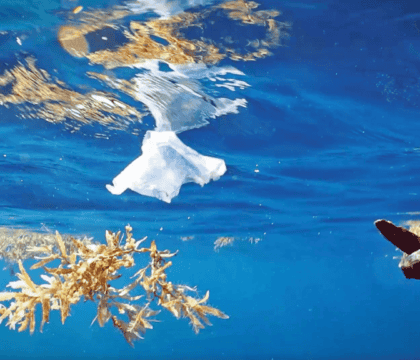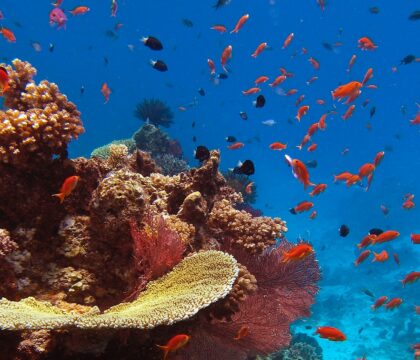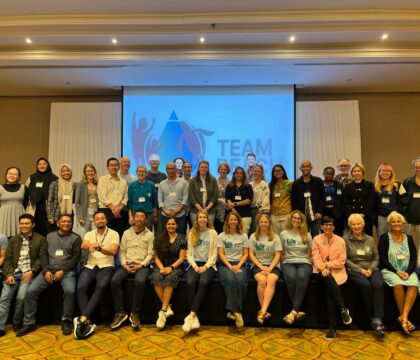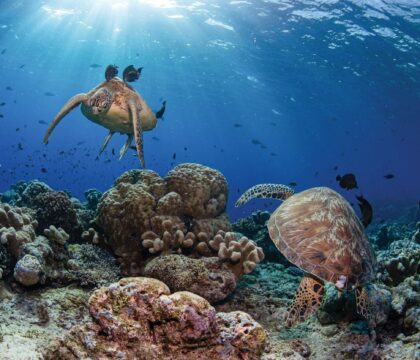December 12, 2013 • News Announcements
Progress in Manatee Conservation
Those who have had the privilege of snorkeling with wild manatees in Florida never forget the image of these gentle giants seemingly suspended in crystal clear water, resting, nursing their calves and often grazing. It is the perfect view of these animals, so closely associated with Florida and its waterways; waterways that provide vital habitats for manatees. And the good news is that these waterways may be getting safer for manatees, in one important way, as boat-strikes are down this year. Part of the reason strikes are decreasing may be attributed to the existing and newer ‘no-wake’ and low-speed zones put in place by the Florida Fish and Wildlife Conservation Commission (FFWCC).
New and Persisting Threats to Manatees
Sadly, however, 2013 is the now officially the deadliest year on record for manatees in Florida: 769 have died so far, that we know of, based on official numbers from the Florida Fish and Wildlife Conservation Commission. An environmental reporter for the Tampa Bay Times noted that the mortality number represents more than 15% of the Florida population. 2010 was previously the year when the most manatees died due to stress related to prolonged cold snaps, but this year the numbers are even higher because of a huge ‘red tide’ bloom in southwest Florida that killed 276 manatees. Another 116 manatees died in the Indian River Lagoon from what scientists are calling a ‘suite of toxins’ associated with red seaweed the animals were eating. It seems the manatees fed on the seaweed because their usual forage of sea grasses had been wiped-out by another huge algal bloom—an estimated 47,000 acres of sea grasses are now gone.
Where are these massive ‘red tides’ and destructive algal blooms coming from? Although run-off containing nutrients from agricultural fertilizers are often linked to these events, including red tides, a scientist at Harbor Branch Oceanographic Institute, Brian Lapointe, has found a link to sewage.
In an Earthjustice blog on this topic, Dr. Katie Tripp of ‘Save the Manatee Club’ is quoted saying that this year’s manatee mortality numbers “is a loud and clear signal that our [Florida] waterways are in trouble” which brings us full-circle back to the value of experiencing these endangered animals in the wild, in their native Florida habitats. To experience these animals in a meaningful way means understanding and appreciating their habitats—how they function, how we impact them, and how we can protect them…with privilege comes responsibility.
You can learn more about manatee conservation issues and see them for yourself on one of our upcoming Florida manatee travel programs.




